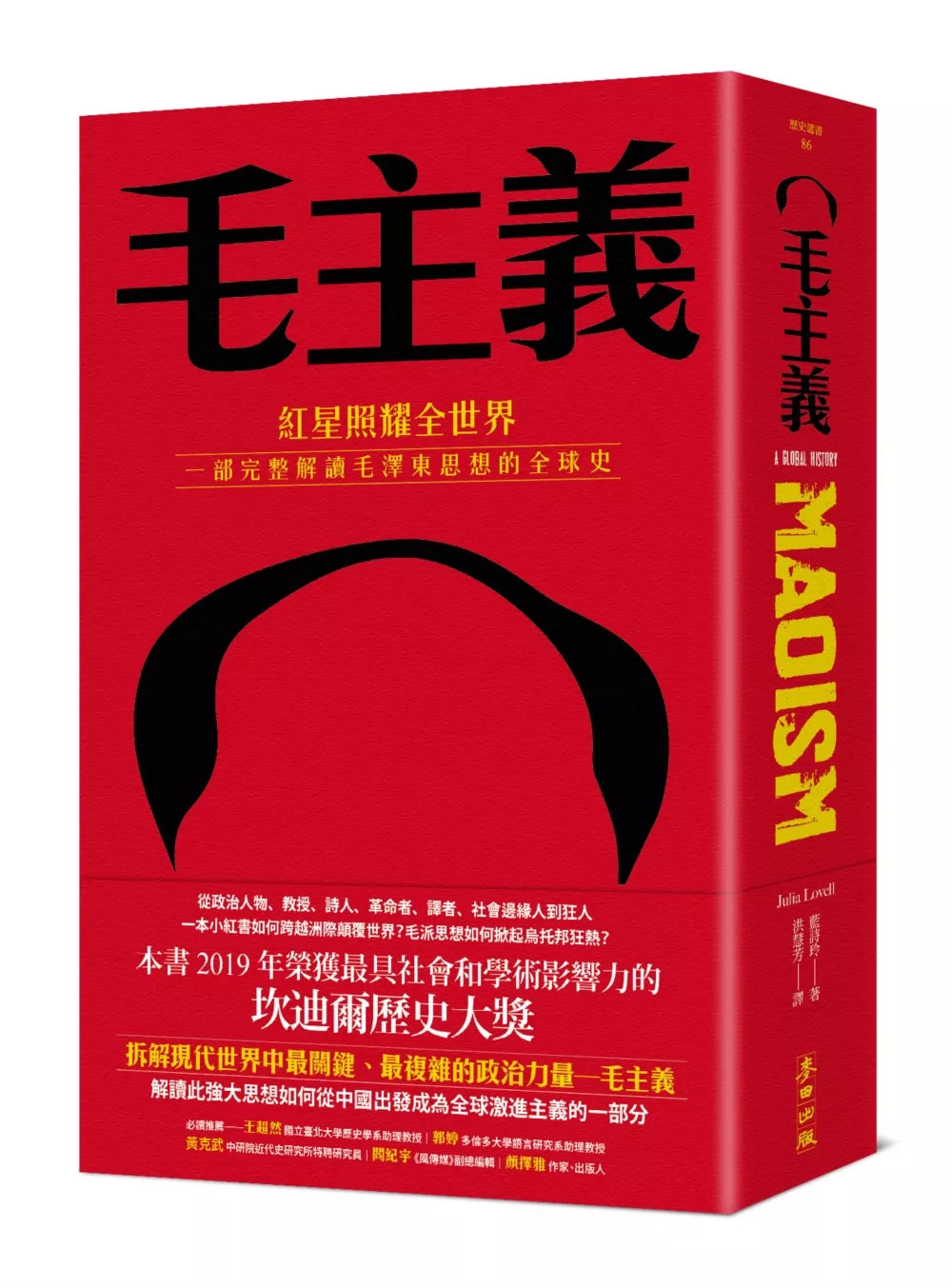1
/
of
1
Maoism: Red Star Shines Over the World: A Complete Global History of Mao Zedong Thought
Maoism: Red Star Shines Over the World: A Complete Global History of Mao Zedong Thought
Lan Shiling Hong Huifang 译
Regular price
$43.99 USD
Regular price
Sale price
$43.99 USD
Unit price
/
per
Low stock
Couldn't load pickup availability
About Book
About Book
Maoism: A Global History
From politician to professor, poet, revolutionary, translator, social marginalized figure to madman: How did a little red book transcend continents and upend the world? How did Maoism spark a utopian craze?Unpacking the most crucial and complex political force in the modern world: A Maoist interpretation of how this powerful ideology originated in China and became part of global radicalism.
◆Using a global history perspective, it explains the rise of Maoism and its spread to every corner of the world. ◆Won the 2019 Kandil History Prize for the most socially and academically influential work. ◆Nominated for the Al-Rodhan Prize for Global Understanding, the Doite Memorial Prize, and the Bameley Gifford Prize.
Must-read recommendations──
Wang Chaoran, Assistant Professor, Department of History, National Taipei University; Guo Ting, Assistant Professor, Department of Linguistics, University of Toronto; Huang Kewu, Distinguished Research Fellow, Institute of Modern History, Academia Sinica; Yan Jiyu, Deputy Editor-in-Chief, Feng Chuan Media; Yan Zeya, Writer and Publisher
This book deftly corrects the biggest misconceptions about China today. It's penetrating, engaging, and profoundly informative. --Evan Osnos, National Book Award winner and author of Age of Ambition. Brilliant! --Andrew Marr, renowned journalist.
A stunning masterpiece! —Historian Jonathan Fenby
Inspiring and thought-provoking... The writing is elegant and fluent, insightful yet clear and easy to understand. --David Aaronovitch, reporter
A thrilling alternative history of the 20th century. —Financial Times
▶As a teenager, Chen Ping (future leader of the Malayan Communist Party) became interested in reading Mao Zedong's works after reading the Chinese version of "Red Star Over China".
▶A faction of the Indian Communist Party led an uprising in Telangana state inspired by Maoist strategies, but was bloodily suppressed by India's new government.
▶During the Sino-Indian border war, members of the Communist Party of India (CPI) were imprisoned. In prison, they diligently studied and discussed Mao Zedong's works.
▶ Indonesian Communist Party (PKI) leader Aidit visited China and wrote political articles that were deeply influenced by Mao Zedong's will to global revolution.
▶The Revolutionary Internationalist Movement (RIM) was founded in France with the aim of "saving" and perpetuating global Maoism.
Shining Path leaders orchestrated a prisoner uprising in Lima prison, leading to widespread bloodshed.
▶The Malayan Communist Party (MCP) and the Burmese Communist Party (BCP) signed peace agreements with the Malaysian and Myanmar governments respectively.
Shining Path's violence in Lima escalated. Guzmán was captured in a police raid. Shining Path's leadership and the rebel movement quickly collapsed.
Nepal's Maoist party changed its name to the Communist Party of Nepal (Maoist) (CPNM) and began guerrilla warfare training in western Nepal.
From the tea plantations of northern India to the Andes, from the 5th arrondissement of Paris to the fields of Tanzania, from the rice paddies of Cambodia to the townhouses of Bristol, Maoism has connected people in every corner of the world, forming a force that cannot be ignored.
******
An English-language work propelled the guerrilla-state Chinese Communist Party onto the world stage. In 1936, Edgar Snow, a journalist from the American Midwest, traveled to northwestern China with the help of Song Qingling and the underground Chinese Communist Party. He visited Mao Zedong's new headquarters and wrote Red Star Over China. The book became a global bestseller, catapulting Mao Zedong to international prominence and political prominence. It spread Mao's ideas and his revolution to Indian nationalists, Chinese intellectuals, Soviet guerrillas, the US president, Malayan rebels, anti-apartheid fighters, Western radicals, Nepalese rebels, and many others. Maoism was therefore integrated with communist movements in various places, and Maoist China even provided them with spiritual and material support and resources for cultivating talents.
Maoism revolutionized China and the world. Maoism is a potent combination of party-building discipline, anti-colonial rebellion, and "continuous revolution," grafted onto the secular creed of Soviet Marxism. It has not only shed light on China's contemporary history but has also profoundly influenced the global tide of rebellion, disobedience, and intolerance over the past eighty years. However, outside of China, and particularly in the West, the global spread of Mao Zedong and his thought, and their significance in the history of contemporary radicalism, are largely unappreciated. With the end of the Cold War, the clear global triumph of neoliberal capitalism, and the resurgence of religious extremism, Mao Zedong and his thought were erased. This book aims to bring Mao Zedong and his thought back to the forefront and reshape Maoism. Studying the history of global Maoism has very important implications for contemporary challenges around the world.
A significant work exploring the diversity and comprehensiveness of Maoism. Exploring global Maoism is crucial not only for understanding Chinese history but also for understanding radical politics in many parts of the world. Maoism, in particular, emerged as an international force during the era of decolonization. In developing countries, Maoism's anti-imperialist message captivated people who were economically, politically, and culturally oppressed. They yearned for the living standards and international respect of Western industrialized nations. Despite the end of the Cold War, poverty and inequality persist. As Europe grapples with the migration crisis caused by poverty and political instability, this book offers a window into the past and present, exploring the radicalism born of material and political despair and its consequences.
In this book, the author re-evaluates Maoism as a force influencing China and even the world.
Publication Date
Publication Date
2022-04-02
Publisher
Publisher
麥田
Imprint
Imprint
Pages
Pages
760
ISBN
ISBN
9786263101517
share

